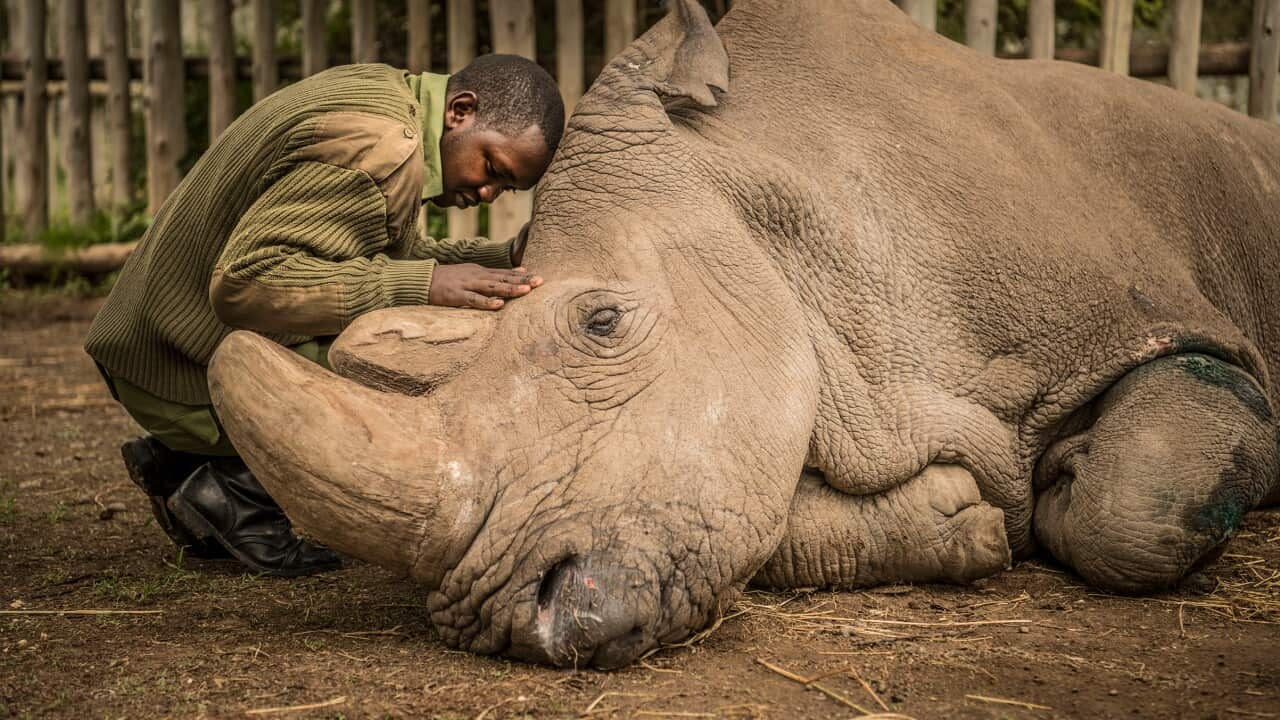China has postponed the lifting of a ban on the trade of rhino horn and tiger parts for medicine and other uses, the government says.
The move on Monday follows a storm of protest from conservation groups over a plan to water down the decades-old prohibition.
In October, the State Council issued a circular replacing a 1993 ban on the trade of tiger bones and rhinoceros horn, opening up exceptions under "special circumstances", including medical "research".
Environmental groups said lifting of the ban would be disastrous for endangered rhinoceros and tiger populations, even if the animal parts were only sourced from those bred in captivity.

China banned the sale of rhino horn in 1993. Source: AAP
Rhinos and tigers are already under critical pressure from a black market supplying the traditional medicine trade.
The "detailed regulations for implementation" of the October change had been "postponed after study", the official Xinhua news agency reported, citing State Council Executive Deputy Secretary-General Ding Xuedong.
Under the October plan, exceptions to the ban could be made for parts from those animals, bred in captivity, being used for medical and scientific research, education and "cultural exchanges".
Ding did not give a reason for postponing the change, or indicate if it would be permanent, but said the old ban remained in force.
China would continue to "organise special crackdown campaigns" with a focus on "addressing the illegal trade of rhinos, tigers and their byproducts".
Conservation groups argue that easing the ban would be devastating for efforts to protect tigers and rhinos because it would confuse consumers and authorities as to which products were legal and which not, and expand markets for them.
China banned trade in tiger bones and rhino horns 25 years ago as part of global efforts to save the animals.
Share



